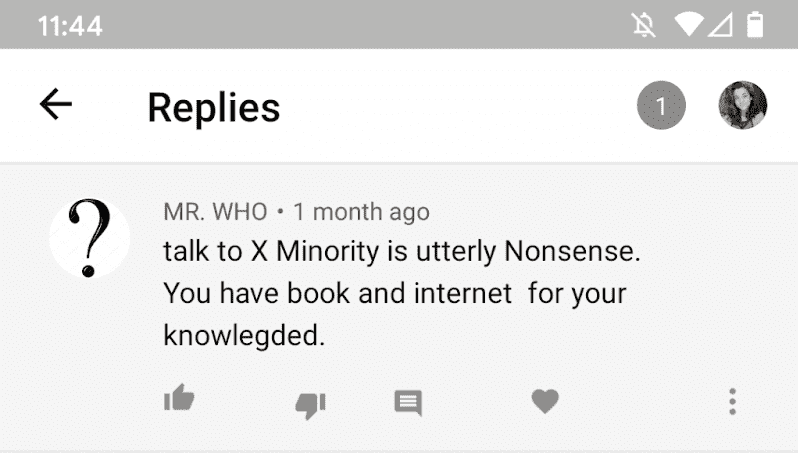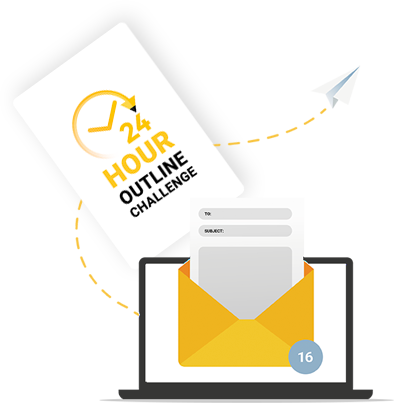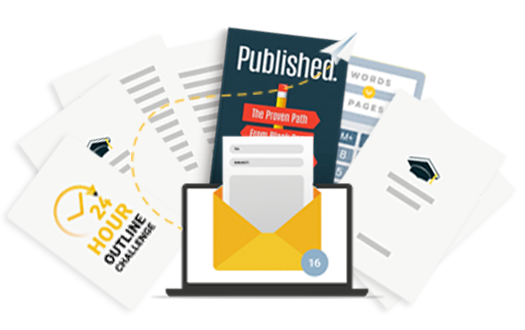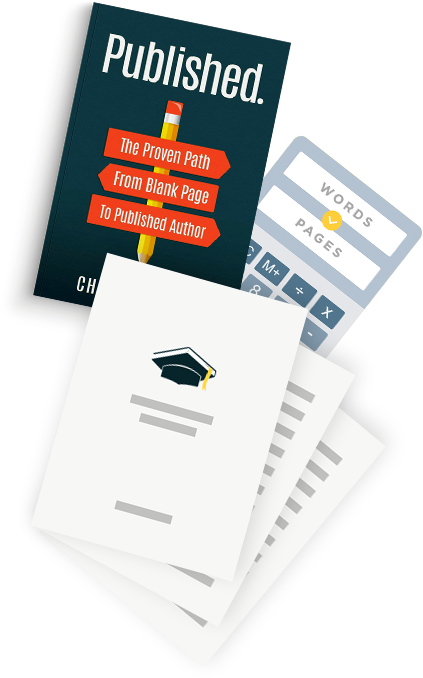If you’re an author, or aspiring author, you probably know that producing a book often requires a team. Editors, cover artists, interior designers, and so on.
But there’s a new potential hire to make your book as perfect as possible. With a recent rise in popularity, there are a lot of questions popping up around: the sensitivity reader. Most writers have at least heard of sensitivity readers. But what are they? How do you know if your book needs one?
This exploration of the sensitivity reader concept covers:
- What is a sensitivity reader?
- Sensitivity reader controversy
- Do you need sensitivity readers?
- How to hire a sensitivity reader
- Do publishers hire sensitivity readers?
- How do you become a sensitivity reader?
What is a sensitivity reader?
A sensitivity reader is a special book critiquer who reads manuscripts to look for insensitive, offensive, or archaic portrayals of minorities. Typically, these readers are an active member of that marginalized group. Writers might hire sensitivity readers when they write characters who are members of a marginalized group that the author is not a part of.
For example: if a heterosexual author has a character in the LGBTQ+ community, they might hire a sensitivity reader from that community to make sure they haven’t accidentally included harmful tropes, inaccurate information, or portrayed the character in a rude or ignorant way.
While including diverse representation in media is an important and intentional act, it doesn’t always go well. Even with the best intentions, it’s easy for an author to misstep in a way that could be harmful for the group they’re trying to represent.
To help avoid that kind of mistake, you should hire a sensitivity reader.
Sensitivity readers can help protect the author from catching heat for not doing their due diligence, as well as protecting readers from needless, potentially triggering content.
While a sensitivity reader can sift through your manuscript to point out internalized bias, stereotypes, and insensitive language, they are not a guarantee against mistakes. Just like hiring a copy editor is a great idea to make your manuscript as clean as possible, it’s still not a guarantee that a typo or two won’t make its way into your final publication.
Sensitivity reader controversy & how to not get caught up in it
There are many authors and others in the publishing industry who will bristle at the term “sensitivity reader.” Many argue they’re unnecessary. (These are often the same people who think that being asked to follow terms and conditions of Twitter counts as censorship.)
Some authors see it as literal censorship. I’ve seen more than one writer swear off of editors because they didn’t want anyone changing their book, and they want to write whatever they like. Both groups of people seem confused about what these services are, which is: People with more experience than you, offering advice on how to improve your book. You’re free to take or leave their advice after it’s been given.
On my YouTube channel, I often give tips for how to handle writing characters who are in a marginalized group that the writer is not a part of, and in the comment sections, I’ll get takes like this one:

As you can see, some people think you don’t even have to have spoken to a member of a group before you can competently write about them, and they’re offended at the mere suggestion.
While reading and researching is great for your “knowledged” on certain subjects, we still have internalized biases about groups we are not a part of that we might not even be aware of, just from having been raised in a certain kind of society. Even members of those groups can harbor internalized biases. It takes a trained eye to be able to spot biases in the ways they come out in our writing. That’s where sensitivity readers come in.
Do authors need sensitivity readers? Instances it’s required:
Whether an author needs a sensitivity reader can depend on a few things.
Here are some questions to ask yourself when you’re deciding if you should hire one:
1. If you’re writing major characters that are a part of a marginalized group you’re not a part of yourself.
Even with research and care, it’s easy to misunderstand and misconstrue different facets of how another group lives and thinks.
Having an insider’s opinion on your content can help you avoid making harmful mistakes, perpetuating stereotypes, or offending and alienating your readers.
2. If you’re dealing with certain subject matter you’re not an expert on or haven’t experienced yourself.
Outside of marginalized groups, you might write a character experiencing something significant that you don’t have hands-on experience with. Some examples are sexual assault, limb amputation, death of a child, cancer treatement, or deportation. These might be cases where you’d hire a sensitivity reader to make sure you’re being as thoughtful and accurate as you can be when portraying this kind of delicate subject matter.
3. If you feel like you need a sensitivity reader, it probably means you do.
If your gut is telling you that you need someone to take a specific look at your story, you’re probably right.
How to hire a sensitivity reader in 5 steps
If you’ve decided to move forward with hiring a sensitivity reader for your book, here are some things you might want to do to make sure you’ve hired the right one.
1. Consider what you need in a sensitivity reader.
Do you just need one group represented, or do you have several? It might not be practical to hire a different reader for every group, so you may need to decide which is most important for the story, or find a reader who has multiple specialties.
2. Grow your own understanding.
While there’s no substitute for lived experiences, authors can make a lot of headway into growing their own empathy and understanding for a group they’re not a part of, while ridding their manuscript of the bigger representation issues.
Read books by authors of that marginalized group, make an effort to make connections with diverse groups of people, and listen with your ears more than your mouth. If you hire a sensitivity reader, you might be shocked–even offended–by their feedback.
Keep an open mind and understand that you’re hiring them to learn. Paying someone for a service only to become defensive and shut down their advice doesn’t sound very efficient or beneficial for anyone.
3. Do your research before hiring.
Just like with editors, cover designers, and other book service providers, make sure you’re doing enough research to vet your hires.
Check reviews and testimonials (preferably ones outside of their website, or ones you can verify), ask for referrals, look at their example work, and have a conversation with them to see if you’ll work well together.
I remember a little book scandal about a white woman who was pretending to be a Black sensitivity reader. That is a great example of why research into anyone you hire is necessary.
4. Remember that all people are fallible.
Even if you hire a sensitivity reader, you still can’t guarantee that your story will be fully without fault.
There are two main reasons for this:
- Standards and expectations constantly evolve. Words and terminology fall in and out of use. Terms that used to be acceptable become bastardized, misused, or irrelevant. For example, some terms start as medical technicalities, then the way they’re used over time against the group they apply to, turn them into slurs.
- Everyone is different, and every reader will have unique experiences as to what it means to be in that marginalized group. For example, if you have a character who is a member of the Chitimacha tribe, and you hire an Apache sensitivity reader, there might be some mistakes there.
You can’t toss a blanket over every American Indian experience. Even within the same tribe of people, individuals have different outlooks and opinions.
To avoid this kind of issue: try to have an interview with the sensitivity reader where you let them know about your character, the book’s conflict, and anything else that might help them gauge if they’re the right reader for your manuscript.
I don’t mention these things to dissuade you from hiring a sensitivity reader, only to keep in mind that even with your and their best efforts, there will be no representation that’s “perfect” for everyone.
5. Realize that this is not volunteer work.
Sensitivity readers put in a lot of hours of research and work, and they deserve fair compensation. Be ready to pay your sensitivity readers a fair wage, just like you pay editors and designers.
Do publishers hire sensitivity readers?
Most publishers don’t require sensitivity readers. The ones that do typically leave it up to the author to hire them. Most writers who hire sensitivity readers will do so before they query the novel.
According to The Editorial Freelancers Association, you can expect to pay between 1 and 19 cents per word for a sensitivity reader.
If you’re looking to hire your own sensitivity readers, here’s a brief list of readers and their areas of speciality that you might consider:
- Samantha Kassé: Black, mental health, and LGBTQ+
- Ronan Sadler: disabilities and chronic illness
- Shenwei Morris: Asian American
- Kai Cheng: trans, queer, Chinese
And here are a few resources to discover more sensitivity readers in your desired areas of expertise:
How do you become a sensitivity reader?
If you think you’d make a good sensitivity reader, here are a few things you can do to become a successful one.
1. Be qualified.
Like I mentioned earlier, simply being a member of a specific marginalized group might not necessarily qualify you for being a sensitivity reader. People who make the best sensitivity readers are people who, in some way, have been trained to pick up on things like microaggressions.
If a person has never confronted discrimination associated with their group, they may not know how to recognize it as well as someone who has been trained to.
Here are a few things you might expect to have as a sensitivity reader:
- A love of reading. Just like editors, you’re going to be knee-deep in words for hours. If you hate reading, this is probably not the job for you.
- Experience as a marginalized person. For example, if a person who is a member of a regional racial minority was raised in an all-white neighborhood, they might not have the relevant experience necessary to be a sufficient sensitivity reader for certain stories. That doesn’t make their experience irrelevant for the job, but they might specify their manner of upbringing so people with stories relevant to that experience can find them.
- A desire for justice and fairness. A sensitivity reader also requires the desire for things to be respectful and fair, not only for their own marginalized group, but for everyone.
- An awareness of current and past social events. Having experience but no context might not make the most effective sensitivity reader.
2. Create a website.
Freelancers in any industry benefit from websites and portfolios. Having a landing page with a contact form for clients to get in touch with you, a list of your specialties, sample pieces, and testimonials can help writers find you.
3. Get on rolodexes and lists.
For example, we at SPS have a rolodex of approved editors, formatters, designers, and sensitivity readers. You can apply for inclusion.
4. Request testimonials.
When you get clients, make sure they’re pleased with your work, then ask for a short statement about their experience with your services. If they’re particularly happy with the job you’ve done, you might encourage them to post their review on their socials or in a blog post as well. This will make you seem like a more reliable hire, leading to more jobs.
While some people may see sensitivity reading as irrelevant or censorship, there is a growing demand in the publishing industry for these services.
As a writer, consider carefully if your manuscript could benefit from a sensitivity read. As an aspiring freelancer, use the tips above to get started.
If you’re in the editing phase, or coming up to it, make sure to grab a copy of our self publishing editing checklist to help you cross all your t’s and dot all your i’s to successfully editing your book!




